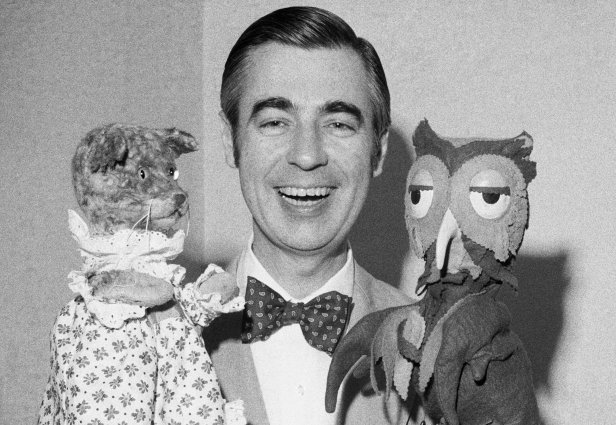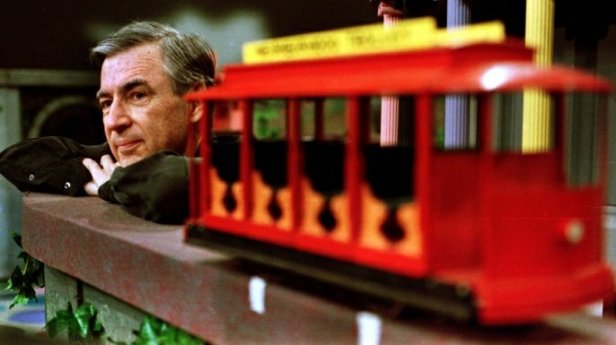
American television personality, musician, puppeteer and Presbyterian minister Fred Rogers, aka Mister Rogers, was the first adult on television who didn’t bore me as a child.
Born in 1928 in Latrobe, Pennsylvania, Rogers spent much of his free time as a child spending time with his grandfather and being musical with his family, even singing at the age of five with piano accompaniment from his mother.
He graduated Rollins College in Winter Park, Florida in 1951, earning a B.A. in music composition.
He applied for a job at NBC in New York City, assisting in the production of shows like Your Hit Parade and The Kate Smith Hour, but later quit when he realized advertising and merchandising undermined the medium’s educational value.

He then went to a local public television station in Pittsburgh, WQED, in 1954 as a puppeteer for The Children’s Corner, and it was here that some of the future stars of Mister Rogers’ Neighborhood made their debut, including King Friday XIII and X the Owl.
In 1963, Rogers moved to Toronto to develop the 15-minute children’s program Misterogers for CBC. It ran for only 3 seasons despite its popularity with Canadian children. The concept of a trolley that goes to a land of make-believe originated on this program.
After acquiring the rights to the CBC show in 1966, Rogers took it back to America and created the show that he was most famous for, Mister Rogers’ Neighborhood, which ran from 1968 to 2001, first on WQED and then on PBS after its first year.
The show always began with Rogers singing the now-famous theme song “Won’t You Be My Neighbor?” (which Rogers wrote along with almost every other song in the series) and always putting on sneakers and a cardigan (which his mother knitted for him). The show consisted of short films, visiting new places, interacting with guests, and a trip to the Neighborhood of Make-Believe ruled by the puppet King Friday.

Most importantly, Rogers always appeared completely earnest on camera. He knew that children could detect phoniness, which was why they liked him.
The goal of the show was to teach kids to love themselves and others, and it oftentimes addressed common fears like the first day of school, the fear of being sucked down the drain in the bathtub, etc. Comforting kids and making them feel safe, most of the time with music, was what Rogers was a master at. The main reason why he went into television was to address these issues which no other programs were addressing. Displeased with most television aimed at kids, he set out to write youth-oriented programming that was more intelligent and less off-putting.
He only played himself on television, including when he voiced an animated version of himself in the PBS series Arthur. The only time he played someone else was when he starred as a preacher in a 1996 episode of Dr. Quinn, Medicine Woman.
One of my favorite things about Rogers was his ability to laugh at himself. For example, when comedian Eddie Murphy parodied him on Saturday Night Live in the sketch “Mister Robinson’s Neighborhood,” Rogers saw it as a hilarious and loving homage. In addition, he was the only person not to get angry when he was pranked on the show Candid Camera.
Rogers died in 2003 of stomach cancer, but his influence on American families is everlasting. Among his honors are four Emmys (and a Lifetime Achievement Award), the Peabody Award, the Presidential Medal of Freedom, and a place in the Television Hall of Fame alongside Lucille Ball, Norman Lear and Walter Cronkite among others.



A great neighbor indeed. Love the post and the details! Winter Park and Rollins College aren’t that far from me actually.
LikeLiked by 1 person
That’s awesome! Can’t wait to see that new documentary.
LikeLiked by 1 person
Same, plus the Tom Hanks film!
LikeLiked by 1 person